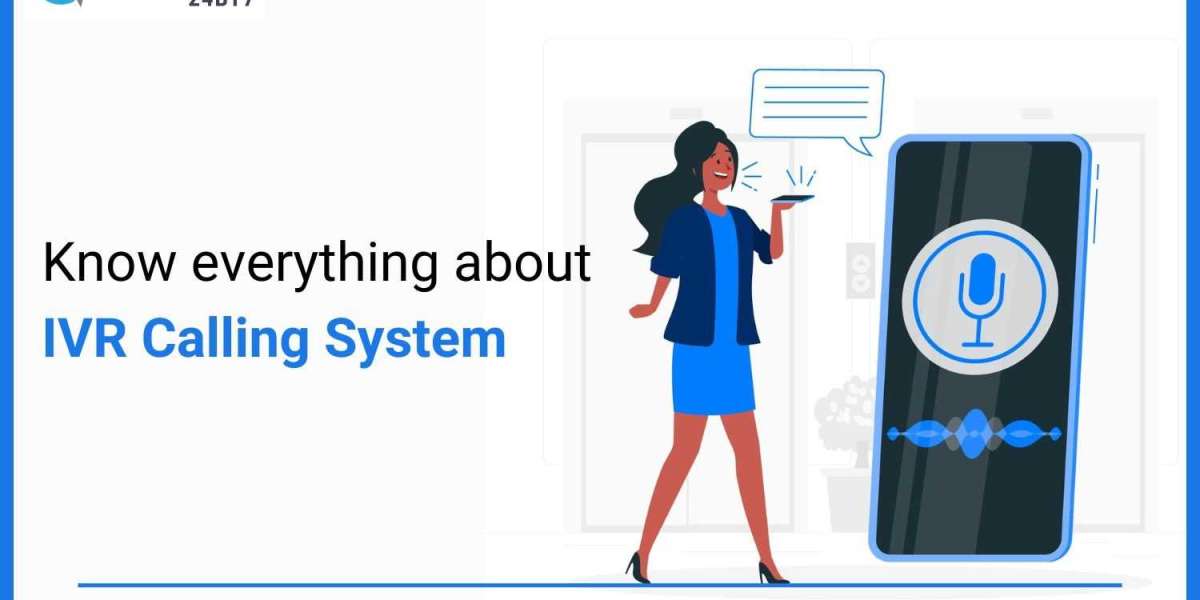A lot of people are put off contacting a contact center because they imagine being placed in an endless line and subjected to a lot of frustration while waiting. IVR calling system gets rid of such complaints and provides callers with a more streamlined and tailored service.
The days of switchboards and operators are long gone. Artificial intelligence (AI), automated menus, and voice recognition are becoming the norm, helping companies to save money while providing a seamless experience for callers. Contact centers might finally get the positive reputation they deserve as valuable resources for their customers.
There's no denying that IVR, or Interactive Voice Response, is a revolutionary technology. Let's summarize the essentials for you.
What precisely is IVR?
Interactive voice response (IVR) enables phone systems to direct calls depending on the caller's spoken or touch-tone input. The callers that reach the contact center are sorted into groups based on their responses to automated menus, which are subsequently used to route them to human agents.
Call centers have historically relied on human operators to manually route and connect incoming calls, which may result in frustratingly lengthy wait times for consumers and inefficient operations for companies. By removing the need for a human switchboard operator and replacing them with an automated system, IVRs ensure that clients never have to wait on hold while they acquire the information they want.
How does the IVR Calling System work?
Integrating VoIP technology into preexisting physical phone system configurations, IVR enables more efficient call routing. With the use of IVR service, this system may be used to create automated menus that route callers to the correct departments, live agents, or databases.
In the event of a cold spell, residents may need to alert the building management to the possibility of frozen pipes. With so many people living there, the maintenance hotline uses interactive voice response (IVR) to sort calls in order of priority and deliver them the service they need as soon as possible. Depending on whether or not your maintenance problem is an emergency, you'll be asked to press 1 or 2 when you phone in. If it's not an emergency, you'll be asked to leave a message with your details and the nature of your complaint; otherwise, you'll be connected with a real person in the management office as soon as possible. This IVR calling system may be basic, but it has made a world of difference in how well maintenance requests are tracked and how quickly they are handled.
Customers may interact with these automated IVR menus by speaking via a microphone or by using a DTMF (dual-tone multi-frequency) touch-tone keypad. ACD (Automated Call Distribution) software is often used in IVR calling systems to aid in routing calls to agents from these menus.
Advantages of IVR Calling System
IVR calling systems vastly enhance the user experience by facilitating a streamlined routing architecture that swiftly links customers to the appropriate support personnel and information. Because of how rapidly phone conversations are linked, companies and consumers can better interact with one another.
Access Your Analytical Information
With software-based solutions like IVR, you can monitor key performance indicators like customer satisfaction, call abandonment rate, and service quality. Your contact center's and its agents' success may be gauged in large part thanks to these KPIs. Your agents will be better equipped to handle incoming calls from customers with the help of this data, which also gives background on previous interactions with that particular consumer.
It's inexpensive.
A well-implemented interactive voice response (IVR) system may be a powerful asset to any contact center. In an IVR environment, you may save around $11 per call while increasing contact center productivity. This is a significant cost saving compared to the more conventional live calling solutions. IVR's automation also aids in lead conversion by speeding up the delivery of genuine, qualified leads to your sales team.
Scalable and simple to administer
When compared to conventional call centers, IVR-enabled contact centers may expand with little to no disruption to service. You don't even need to know how to code to get started! Using Office24by7, you can develop your own IVR routines and procedures with a robust drag-and-drop builder, with no need for code.
Meet the Customers' Actual Needs
The capabilities of today's IVRs extend well beyond the simple option to "press 1 for customer support." A good IVR callingystem will make it simple for clients to get the information they need. Call center settings no longer need interminable wait times before receiving information on the progress of an order or medication, or for being routed to a different department. Innovative and adaptable, today's IVR calling systems can help firms deal with a wide range of challenges.
Developers Amber Case and Ben Greenstein came up with a pick-your-own-vacation IVR option in the face of a global travel shortage. Callers have been immersed in a made-up world thanks to a phone tree model used in interactive voice response systems. Callers are placed in the middle of an (imaginary) roadway and given a series of alternatives from which to pick. Check out their starting point code on the Office24by7 CodeExchange to get an idea of how they achieved it.
Wrapping It Up
If you are on the lookout for a reliable IVR calling system, then there is no other better option than Office24by7. Call us on +91 7097171717 for more details.



